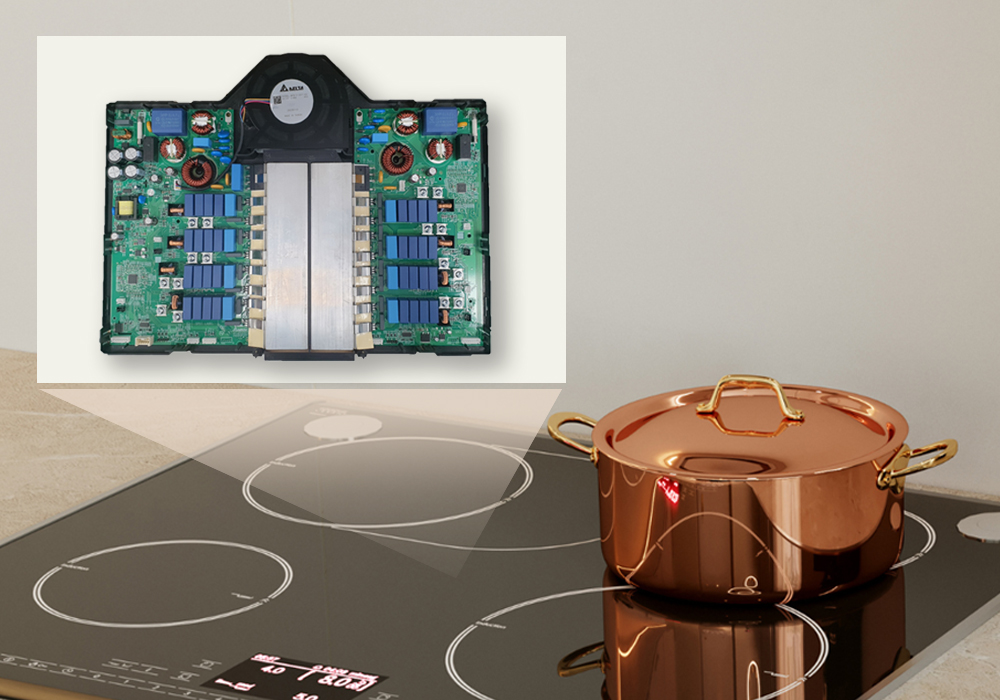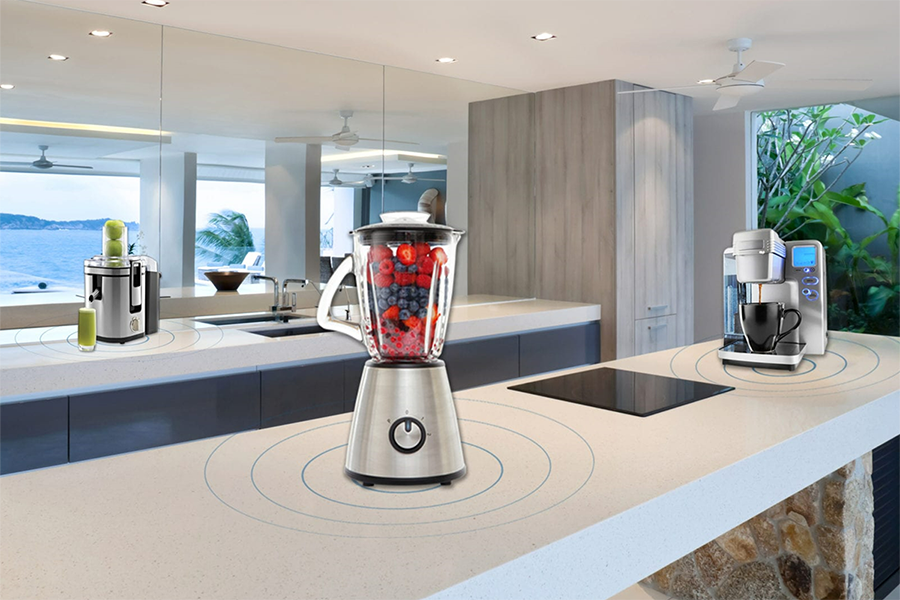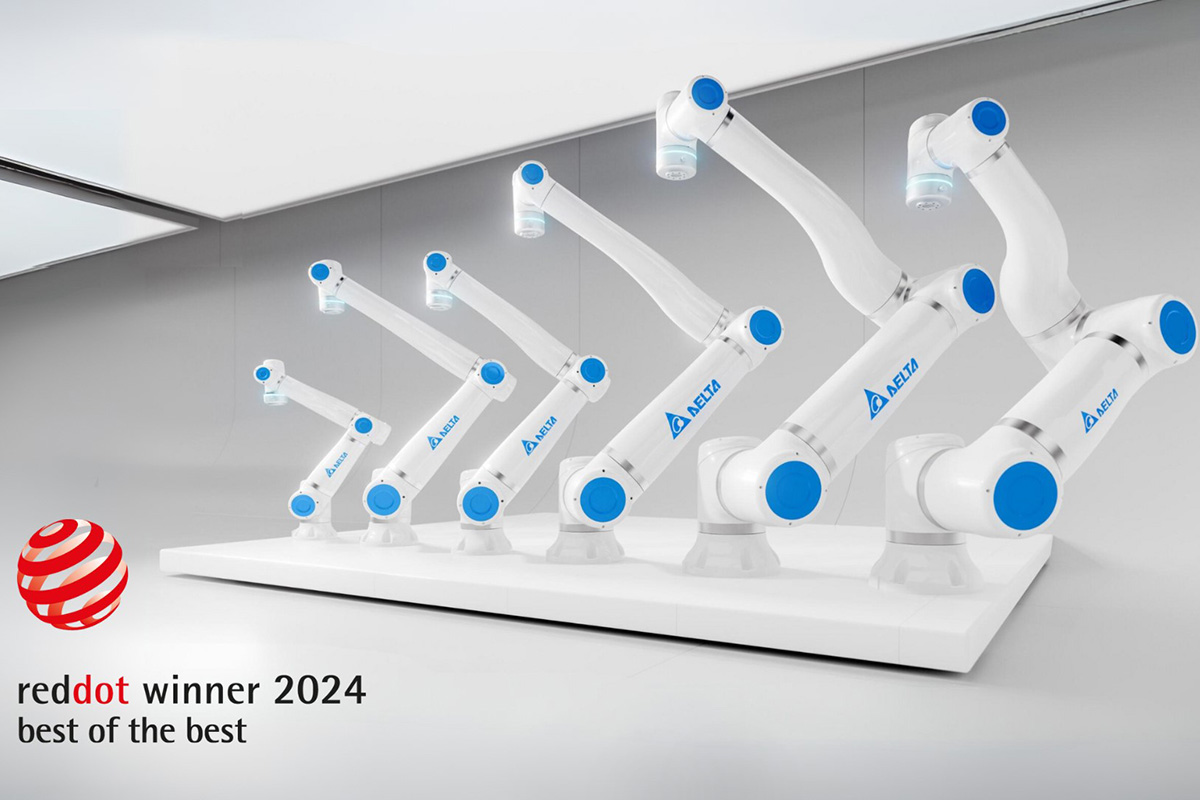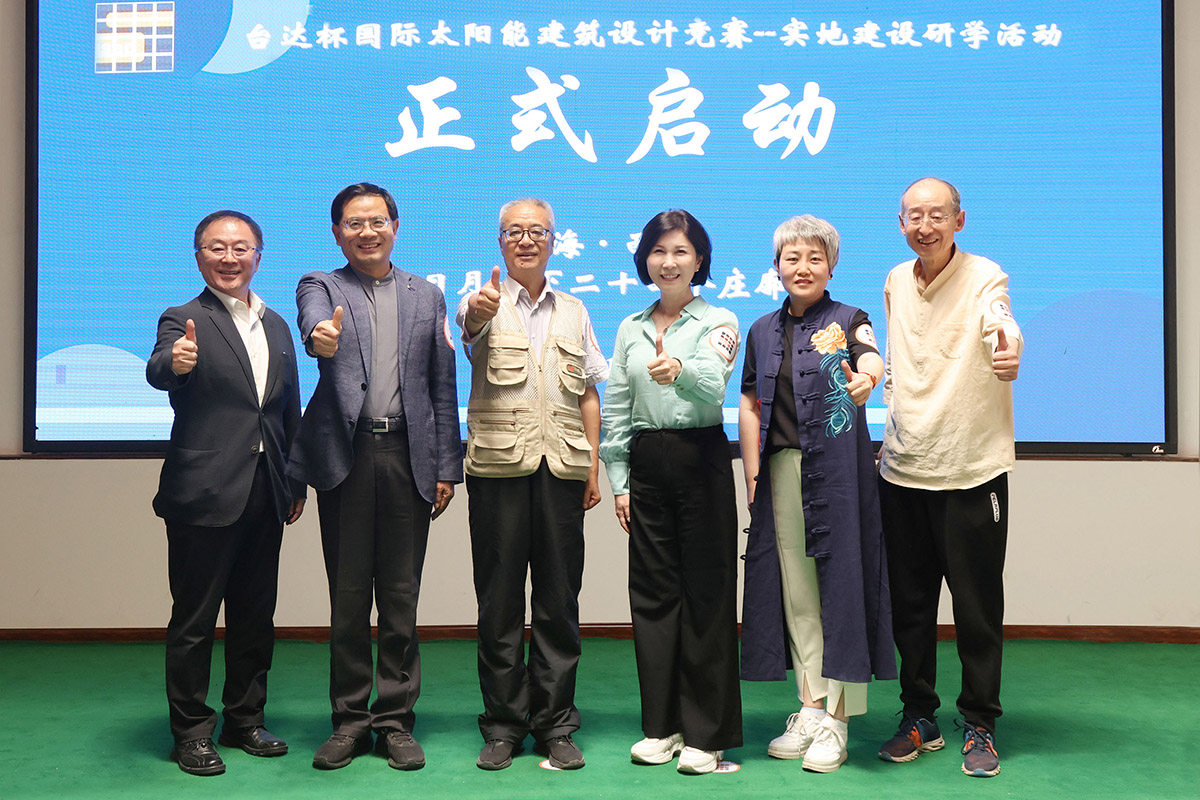In Europe and the US, induction cooktops are popular kitchen appliances among many families. An induction cooktop is developed based on the electromagnetic induction principle. When AC power passes through the cooper coil, which is under the cooking surface, it generates an AC magnetic field. If users put an electrically conductive pot into this field, the resistance of the pot will convert electrical currents into heat to cook the food inside. The power supplies inside these cooktops are one of Delta’s flagship products.
 Delta’s induction cooktop power supplies, if integrated with the “Ki Cordless Kitchen” standard in the future, could help induction hobs to heat and provide a power supply simultaneously.
Delta’s induction cooktop power supplies, if integrated with the “Ki Cordless Kitchen” standard in the future, could help induction hobs to heat and provide a power supply simultaneously.
Delta’s induction cooktop power supplies can heat four burners simultaneously. They also feature smart sensors, which send signals to the display panel to show the cookware's size and condition and prevent it from overheating. The -10°C to 85°C wide operating temperature allows the power supplies to operate in limited spaces with low cooling efficiency. After years of accumulating the technologies to develop mature induction cooktop power supplies, Delta is now dedicated to innovating more advanced products with the “Ki Cordless Kitchen” standard, such as an induction hob featuring wireless electricity transfer.
The “Ki Cordless Kitchen” is a communication protocol launched by the Wireless Power Consortium (WPC) in 2019. This standard aims to provide contactless power transfer to all kitchen electric appliances via a single platform. The transmitter for the Ki Standard supports up to 2.2kW power, which meets the electricity demands of most kitchen appliances. In addition, the KI standard adopts the NFC technology, which not only delivers contactless power but also enables cookware to be programmed by a control interface on smartphones or tablets. Cookware can even be designed to download cooking recipes, paving the way for smart homes in the future.
While the Ki Standard can be applied to non-metal materials, such as granite, marble, and others, using induction hobs as the main power-delivery platform would be more practical currently, considering the cost of setting up a Ki-conforming platform. Aiming to provide a total solution for this new protocol, Delta is innovating induction cooktop power supplies and developing needed components such as control interfaces and others.
There are still many challenges before the Ki Standard becomes a universal communication protocol for most kitchens. For example, appliances that need to adopt the Ki Standard would require significant modifications of power supplies and the addition of NFC-needed components, potentially leading to a substantial short-term increase in costs. For manufacturers, these additional costs would be a push force since the communication protocol is not yet mature enough to generate profits.
Still, Delta is optimistic that the success of incorporating the WPC-developed Qi wireless charging standard into many renowned mobile device brands would prove the unifying potential of the Ki Standard, another WPC-initiated protocol. In addition, the development of the DC house concept, which aims to reduce power loss during the AC to DC conversion, would be a trend for future home electric wiring. Delta believes this trend would lead to more business opportunities for the Ki Standard and is now actively cultivating these technologies before the market matures.
 The ultimate goal of the Ki Standard is for application in kitchen islands and other large platforms, ensuring safe and efficient management of kitchen spaces.
The ultimate goal of the Ki Standard is for application in kitchen islands and other large platforms, ensuring safe and efficient management of kitchen spaces.















